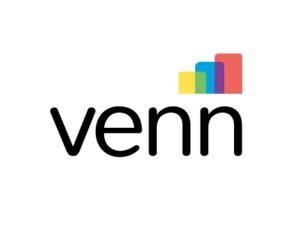Recently, several members of the CI Fellows organization, Dr. Tom Tao, Dr. Craig Fleisher and Dr. Brad Ashton (a whole lot of doctors!) presented a fascinating discussion (you can watch the video at the bottom) on what is called Competitive Technical Intelligence, or CTI.
Now, before you say, “that’s not me!/for me!”, don’t jump out just yet... In fact, if you have a company with some sort of technology that you develop or use, it probably is very much for you.
Here’s how this applies to you:
If you’ve looked at competitors and want to be credible in your industry:
One of the items discussed was that of technology scouting, which is a component of CTI. This can include looking at others to see what they have, how that relates to your tech and ultimately can be translated into how to market and differentiate yourself in the market.
As many companies have done or do, looking at competitors is important and can be a huge advantage, especially if you have a process to support this on an ongoing basis.
As discussed on the webinar, this is something that is valuable for both startups and large companies, including those doing open innovation.
Tech scouting can include the mapping and landscaping of the overall environment, and it’s a field that will become more and more important. According to Brad, “this is something that will grow as time goes on.” Given how rapidly tech is expanding, this makes sense: if you don’t understand the landscape, you won’t know where you really fit.
Tom relates that “in the world of startups, I think they need this capability badly.” and that it is especially important when it comes to investors. It “helps convince investors that [you] know where [you] are and how [you] fit.”
As many startups in Atlantic Canada care about getting investment to help them grow and scale, really having that landscape piece nailed is important. You want to be confident in front of investors: there is no better way to do that than to confidently understand your industry, your competitors and the landscape.
If you’re wondering about different tools you can use:
You might be saying, “I’m a small company. I don’t have the resources to do this.” Well, that’s not right. In fact, you’re already doing this work, but you may not have a system. You know how much is required in terms of dollars? $0.00. Yes, it might require you some time, but you can do much of this work for little to no money.
Have a look at some of the resources discussed during the webinar:
So, these are just a few types and ways that you can use sources. Do you see the overwhelming theme? Hint: they’re free!
Sure, you can spend a lot of money on very complex systems, but if you’re trying to understand technical matters, you can also do much of this work for free or at little cost. Things like Google Alerts, Feedly, and even a shared Excel sheet can be a great starting point to find and categorize information that you need to succeed. (This assumes you have your Key Intelligence Topics and Key Intelligence Questions understood.)
You have to start with your goals first and then figure out the tools to support the needed process. That is what matters. “Begin with the end in mind”, as Stephen Covey said.
Other resources:
The Atlantic Canada Market Intelligence Program, powered by MaRS - Access to premium databases for startups under $1M in revenue and under $5M in private investment in ICT/media, health and life sciences, advanced manufacturing and cleantech.
Canada Business - access to some great consumer and business data.
Universities - lots of great research and knowledgeable people across various industry areas.
Social media chatter tools - great for getting the “pulse” of online conversations
SEM Rush - helpful on a variety of levels, especially when looking at marketing competitive data
Visualization tools - helpful to create visualizations of certain types of data
Wordle - useful for finding the themes from certain texts
Still room for growth
It seems to be the consensus that there is room for growth and innovation in the field. Dr. Tao noted that there are a lot of practices internationally in this space, and this points to leading innovation hubs around the world. This may point to an opportunity for Atlantic Canada as we continue to grow.
Here’s a highlight of the U.S. landscape in the field:
As our companies become well-versed in CTI as a skill, and - potentially - as companies begin building solutions to help companies shape questions, handle and query data and drive strategic outcomes, we may have a good opportunity ahead of us.
One great quote from a participant to leave you with:
“Collecting the info is one thing, being able to understand it in context is the biggest challenge…”
If that’s something you’re grappling with, let’s chat to see what strategies might be applicable to you. That’s what competitive intelligence helps you do: understand relevant information and make informed decisions.
Additional Reading:
Concepts:
Programs:
James Madison University Intelligence Bachelor of Science
Georgetown University’s Master of Professional Studies in Applied Intelligence
Books:
Keeping Abreast of Science and Technology: Technical Intelligence for Business
Tech Mining: Exploiting New Technologies for Competitive Advantage
Tools:
Digimind (social media listening and analysis)

